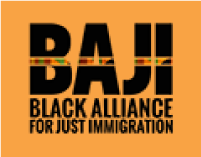MLK was a visionary
Beyond Acts of Service: Martin Luther King was a Visionary not a Dreamer
Every year leading into the third Monday of January, we are fed a popular narrative, one that is high in sugar platitudes but with very little nutritional value – the image of Dr. Martin Luther King, Jr. “the Dreamer”. The sugar-snack image we are fed of Dr. King, especially in celebration of his birth, belies the truth of who he was and how society viewed him when he was alive.
Dr. King was not a dreamer, he was a visionary. He fought in the present for a future world free of racism, poverty, and war where people thrived and lived in peace and love. One year before his murder, in his speech “A Time To Break Silence”, Dr. King warned of the “spiritual death” that was fast approaching the United States if it did not undergo a “revolution of values.”
Dr. King was driven by his vision to speak out against the violence of physical, political and economic warfare. He spoke up against the Vietnam War when those in his inner circle and many of his supporters hoped he wouldn’t. They knew that he would be castigated for moving “out of his lane” of civil rights and non-violent direct action. Dr. King’s vision compelled him to fervently denounce this war and identify militarism as an evil to be vanquished.
In the same speech, Dr. King also spoke of the evils of capitalism saying “True compassion is more than flinging a coin to a beggar; it is not haphazard and superficial. It comes to see that an edifice which produces beggars needs restructuring. A true revolution of values will soon look uneasily on the glaring contrast of poverty and wealth.” Linking militarism and capitalism, he rightly predicted that “the bombs [that the US] drops on Vietnam will explode at home in unemployment and inflation.”
Black immigrants know full well the devastating harm of political, economic and military violence. Indeed, it’s why many of us have sought refuge here in the United States.
Black communities in the US need more than symbolic “acts of service” for one weekend, at the beginning of the year, every year. Dr. King understood that we need to intentionally build the future that we want to live in. That’s why he had planned on leading a Poor People’s March on Washington DC when he was violently snatched away from us by an assassin’s bullet.
BAJI stands on the work of Dr. King and all who contributed to the Civil Rights Movement in this country as we do our part to build and support the Beloved Community that Dr. King envisioned and worked toward.
